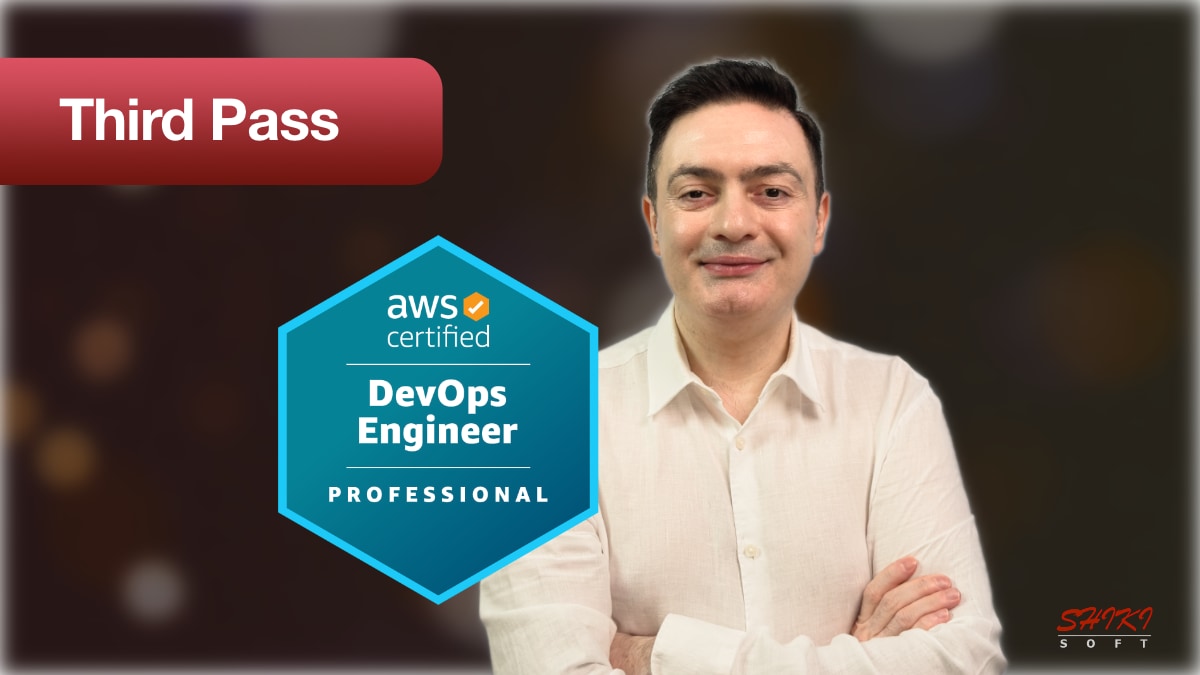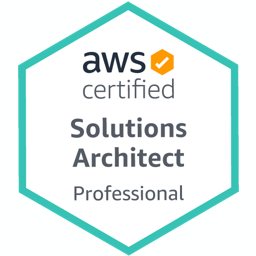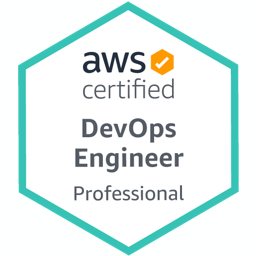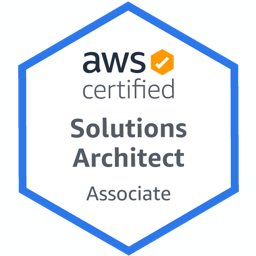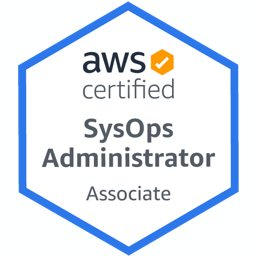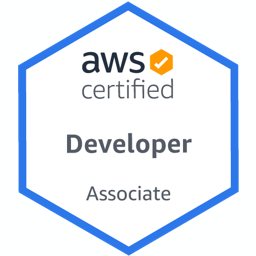Recently, I recertified my AWS Certified DevOps Engineer – Professional (DOP-C02) certification by sitting for the exam for the third time. So, I extended my DevOps Pro certification to 9 years and the AWS Certified Developer – Associate and AWS Certified SysOps Administrator – Associate certifications to 10 years. It was a long marathon.
You need to recertify your AWS certifications in every three years. Although it was my third exam for this certification, it was still hard, and I learned new things during preparation. So, let me give you some insights about the exam coverage, how I prepared, and how online proctoring went with Pearson Vue.
The exam content
I don’t know you, but I don’t enjoy taking exams. However, AWS updates the exam content with new services and best practices every few years, so preparation keeps you updated. I learn new things each time and can see how the AWS platform evolves along the way. Besides, passing the exam boosts your confidence and verifies your knowledge.
So, how was it different this time?
Well, in my first exam in 2018, the focus was on CloudFormation, ElasticBeanstalk, AWS OpsWorks, and EC2 AutoScaling Groups for performing Blue/Green deployments.
This changed in 2021 with the addition of AWS developer tools. AWS CloudFormation was still essential, but AWS CodePipeline, AWS CodeDeploy, AWS CodeBuild, and AWS CodeCommit had crucial shares. There were questions about ElasticBeanstalk and OpsWorks in a reduced capacity. Serverless application deployments with AWS Lambda, API Gateway, and Step Functions were introduced. Some new services, such as Systems Manager, Service Catalog, AWS Config, and Inspector, were also in place.
The main difference in 2024 was the exam’s focus on multi-account AWS architectures with Organizations. For most of the services, you should know how to configure it for your organization in a multi-account setting. This is because, nowadays, using multiple accounts for different purposes is one of the primary AWS best practices.
Some of the topics covered in the exam
Here are some of the topics I encountered during the exam. Of course, the list is not full. Knowing the services well should be your goal.
You should know how to configure multi-account AWS architectures through
AWS Organizations,AWS Control Tower, and other services.You should know how
AWS CodeBuildworks and how to perform specific tasks, such as image signing with AWS Signer.Understanding the capabilities of
AWS CodeDeployand the deployment lifecycles forEC2,Lambda, andECSdeployments is crucial.Unlike 2021, AWS CodeBuild and CodeDeploy were often asked with
AWS CodePipeline. Using CodePipeline with CloudFormation, manual approval actions, and usage of action variables were significant. I am proud to say my AWS CodePipeline Step by Step course covers a considerable amount, although it is not tailored for the exam.Of course,
AWS CloudFormationis still crucial. However, this time, I didn’t see questions about advanced topics like resource policies or stack policies. I often saw it in conjunction with other services like CodePipeline, Service Catalog, etc.Using
AWS CDKand integrating it into a pipeline was important.I saw
AWS CodeArtifacta few times. You should understand how it works and how to use it in a multi-account setting.For monitoring and alerting, you should know
CloudWatchmetrics and logs,CloudTrail, andEventBridgein detail.Amazon ECSandECRwere critical. However, there were also questions aboutAmazon EKS, too. The questions focused on integrating EKS with other AWS services or within an AWS Organization.Using and mounting
EFSvolumes are essential.Step Functions,API Gateway, andAWS Lambdaand their deployment types are crucial.AWS ConfigandSystems Managerare still crucial. I was expecting more about SSM and its excellent features. AWS may focus on it more in the upcoming exams.The exam included security services like
KMS,GuardDuty,AWS WAF,Inspector,Macie, andNetwork Firewall.Many other questions appeared regarding disaster recovery and backup scenarios involving
Auroradatabases andDynamoDBtables.Route 53is still essential as it is the DNS service that helps you in multi-account, multi-region scenarios.The questions also included
Amazon Athena,Glue,QuickSight,OpenSearch,SQS(DLQs),SNS, andKinesis Data Firehose.AWS deprecated
OpsWorksandCodeCommit. I only saw CodeCommit in a CodePipeline question, but just as a source action. It wasn’t important for the question. So, if you know CodePipeline well, you can easily discard it.The most significant change is that I didn’t see a single question about
ElasticBeanstalk. It was a lovely service when it was launched, but other AWS services offer better DevOps features, so I was expecting that.
I was amazed at how AWS changed the goal of each question. Knowing how to use an AWS service with others in a multi-account organization is more crucial than ever. The exam focuses on more hands-on practice and less on memorizing.
The questions were often long, and there were many questions where you chose three from six options. As always, even if you don’t know an option exactly, knowing that other options are impossible can help you solve the questions through elimination.
Online Proctoring with Pearson Vue
I work from my home office, so taking courses from the comfort of my office is a blessing. That is why I chose online proctoring for the exam. Here is the process.
Before 30 minutes, I started the exam check-in process, which ran standard tests like open applications and internet speed on my computer through the OnVue app.
It sent me a link as a text message, asking me to take a photo of myself, my ID, and my desk from several angles.
Then, the proctor greeted me and asked me to show my wrists and desk using the webcam.
She started the exam. I never left the camera view.
As a non-native English speaker, I took an extra 30 minutes of ESL. However, I finished the exam 20 minutes early. So, I only used 10 minutes from it.
Overall, I had a positive experience. However, the text size was a little smaller and not easy on my eyes, which caused me to be fatigued in the middle of the exam.
The Result and Exam Score
Surprisingly, the exam page didn’t show whether I passed after I finished. This was my eighth AWS exam, consisting of 3 Associate and 5 Professional levels. It showed the exam result with the ‘Passed’ word in the past. This was the first time I didn’t know the exam result immediately after finishing. I saw the result approximately nine hours later in my AWS certification account. After searching the Internet, I learned this is the standard process nowadays. However, knowing that I passed the exam immediately was a relief in the past after the exam fatigue. I really missed it.
I got 883/1000 by using only AWS documentation and practicing myself, as I will discuss my preparation method below. Due to exam fatigue, I missed two easy questions regarding CloudWatch Logs—S3 integration, which would have taken me over 900. Still, I am happy that I passed it with a decent score, where only 750 points would be sufficient.
How did I prepare?
I know you want a quick way to prepare for the exam. I’m sorry, but you won’t get an easy answer from me. I didn’t use any online courses or practice exams.
Knowing the services well and becoming an expert on the topics were more important for me. This is why I didn’t watch any online courses, which often require you to memorize topics. Besides, I am a course creator, so I wanted to understand AWS’s focus on best practices in the exam. I am considering a course focusing on those.
I don’t find the existing practice exams relevant because they often contain confusing answers. They want you to memorize exam questions.
So, how did I prepare?
- I read many AWS whitepapers while taking notes. Here are some:
- Operational Excellence, Reliability, and Security pillars of AWS Well-Architected Framework
- Introduction to DevOps on AWS
- Practicing Continuous Integration and Continuous Delivery on AWS
- Overview of Deployment Options on AWS
- Blue/Green Deployments on AWS
- Development and Test on Amazon Web Services
- Disaster Recovery of Workloads on AWS: Recovery in the Cloud
- AWS Multi-Region Fundamentals
- Running Containerized Microservices on AWS
- Implementing Microservices on AWS
- Containers on AWS
I tried to learn each service covered in the exam blueprint by reading their documentation and making hands-on examples with them.
I watched many AWS Re:Invent videos from 2022 and 2023.
- I summarized what I learned in Word documents to review later.
Of course, as the creator of courses about crucial services like CodePipeline, CloudFormation, and CDK, I already have vast knowledge of these topics.
I can’t say enough how my over ten years of AWS experience helped me during the exam. Sometimes, you just know something doesn’t add up through experience.
Conclusion
AWS Certified DevOps Engineer – Professional is one of the most valuable certifications in the cloud domain. I am glad to see how much hands-on practice is required to pass it. Passing this certification for the third time in the last six years was quite an experience for me. Each time I learned new things, the questions became more complex. However, if you know your domain well, you can pass the exam regardless.
Now, the AWS Certified Solutions Architect – Professional recertification for the third time is on my radar. After that, I am planning to build more content for both exams with new courses to help you. So, follow me on LinkedIn and X (Twitter) to stay tuned.
References
